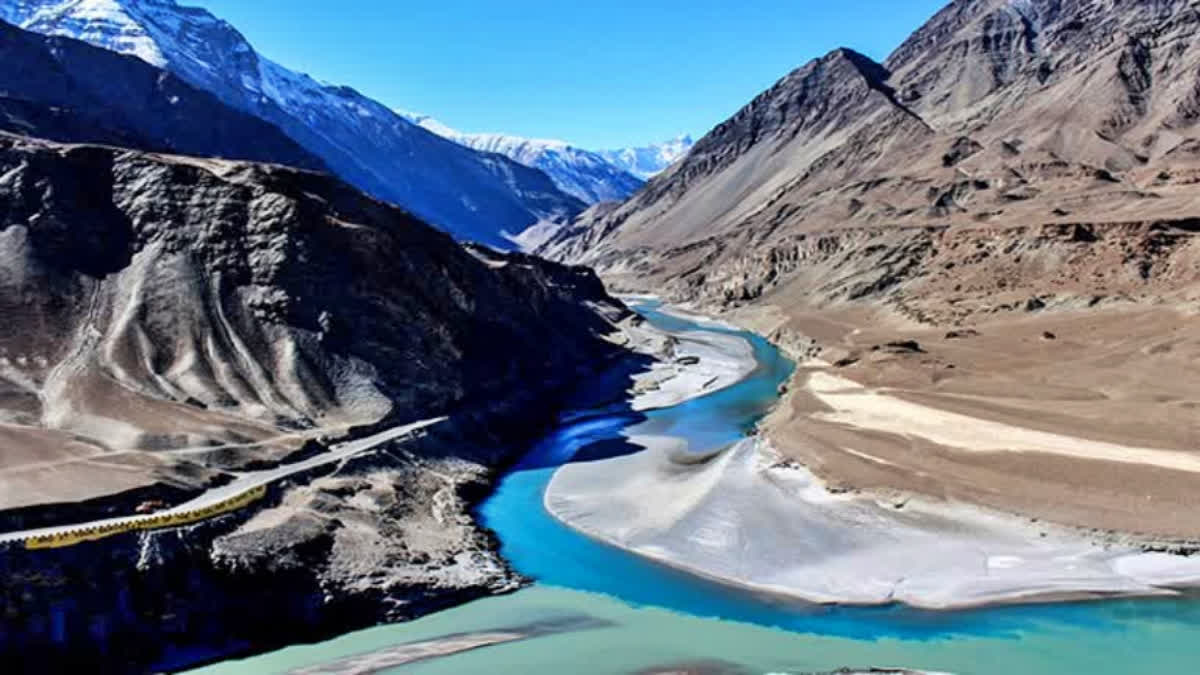New Delhi:India has taken a strong stand on revisiting the Indus Waters Treaty (IWT) following a ruling by the International Court of Arbitration (ICA) in The Hague earlier this week.
New Delhi disputed the ruling of the ICA in The Hague that a separate Court of Arbitration has the “competence” to decide on matters related to the IWT. “On 6 July 2023, the Court of Arbitration rendered its Award on the Competence of the Court (‘Award’) in an arbitration initiated by the Islamic Republic of Pakistan against the Republic of India pursuant to Article IX and Annexure G of the Indus Waters Treaty, as part of a preliminary phase of the arbitration proceedings,” the ICA stated in a press release.
“In a unanimous decision, which is binding on the Parties and without appeal, the Court rejected each of the objections raised by India and determined that the Court is competent to consider and determine the disputes set forth in Pakistan’s Request for Arbitration,” the ICA press release stated.
India responded by saying that the “so-called Court of Arbitration is in contravention of the provisions of the Indus Waters Treaty”. “A Neutral Expert is already seized of the differences pertaining to the Kishenganga and Ratle projects,” the External Affairs said in a statement. “The Neutral Expert proceedings are the only Treaty-consistent proceedings at this juncture. The Treaty does not provide for parallel proceedings on the same set of issues.”
Also read: India issues notice to Pakistan for modification of Indus Water Treaty
First, what is the IWT?
The IWT is a water distribution treaty between India and Pakistan, arranged and negotiated by the World Bank, to use the water available in the Indus River and its tributaries. It was signed in Karachi in September 1960 by then Indian Prime Minister Jawaharlal Nehru and then Pakistani President Ayub Khan.
The Treaty gives control over the waters of the three "eastern rivers" – the Beas, Ravi and Sutlej – to India, while control over the waters of the three "western rivers" – the Indus, Chenab and Jhelum – is with Pakistan. The treaty establishes a cooperative mechanism for exchanging information between the two countries regarding the use of the western rivers allocated to Pakistan and the eastern rivers allocated to India.
The preamble of the treaty recognises the rights and obligations of each country in the optimum use of water from the Indus system in a spirit of goodwill, friendship and cooperation. The treaty allows India to use the western river waters for limited irrigation use and unlimited non-consumptive use such as power generation, navigation, floating of property, and fish culture.
Under the Treaty, a Permanent Indus Commission was established. The Commission, which has a commissioner from each country, oversees the cooperative mechanism and ensures that the two countries meet annually (alternately in India and Pakistan) to discuss myriad issues emerging from the treaty.
Now, what is the controversy?
